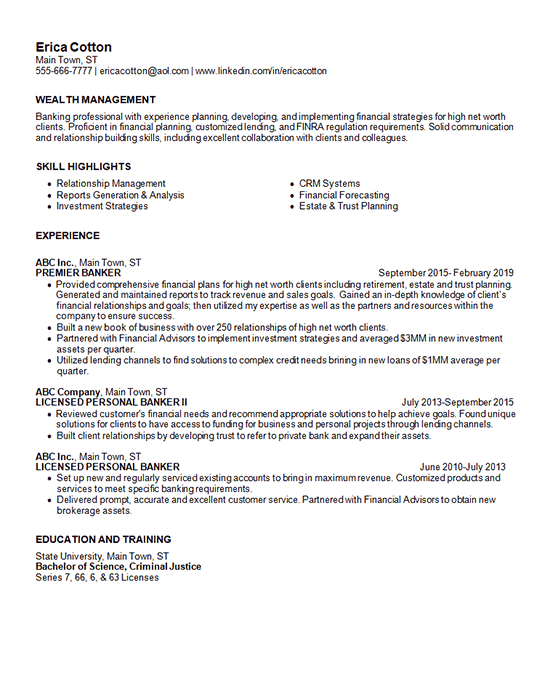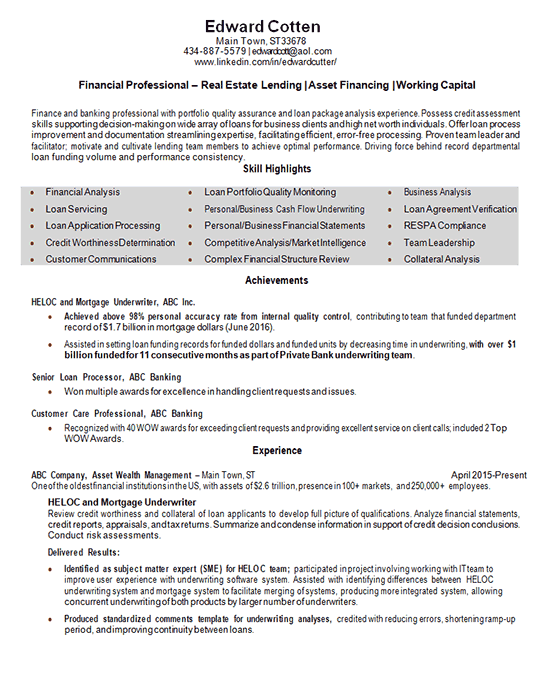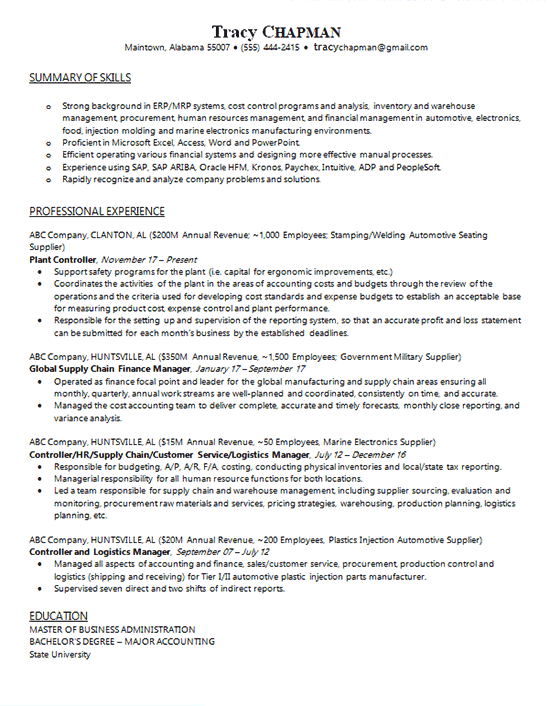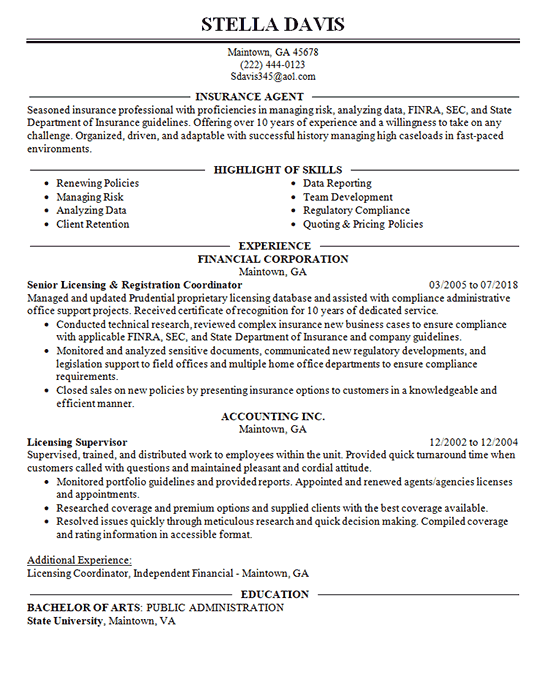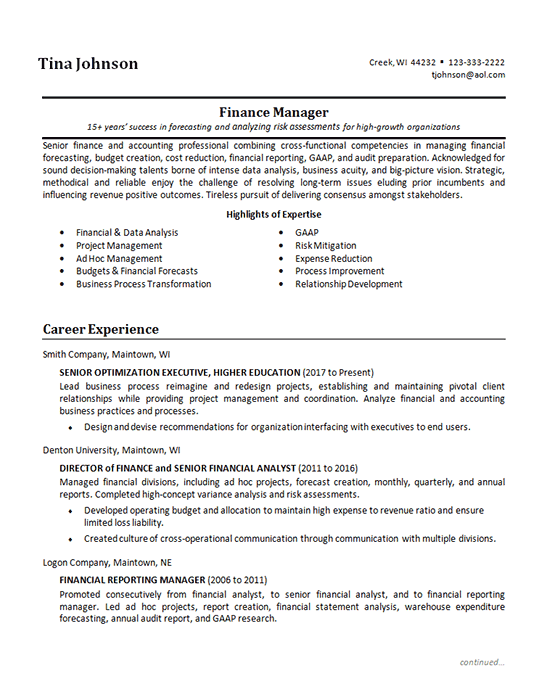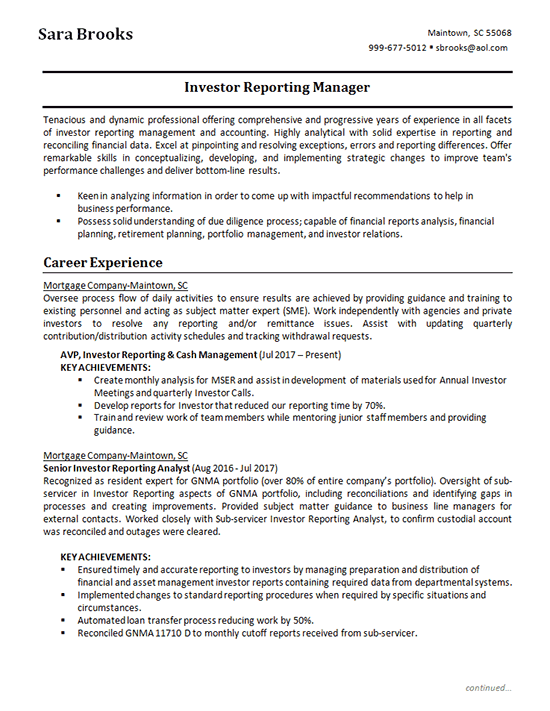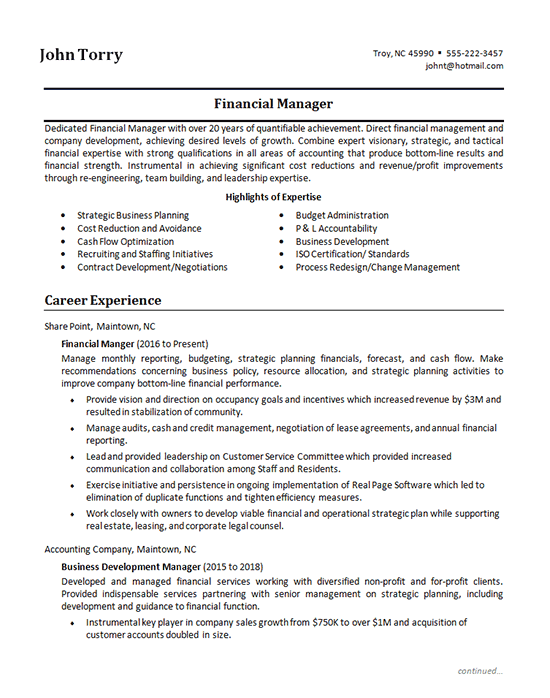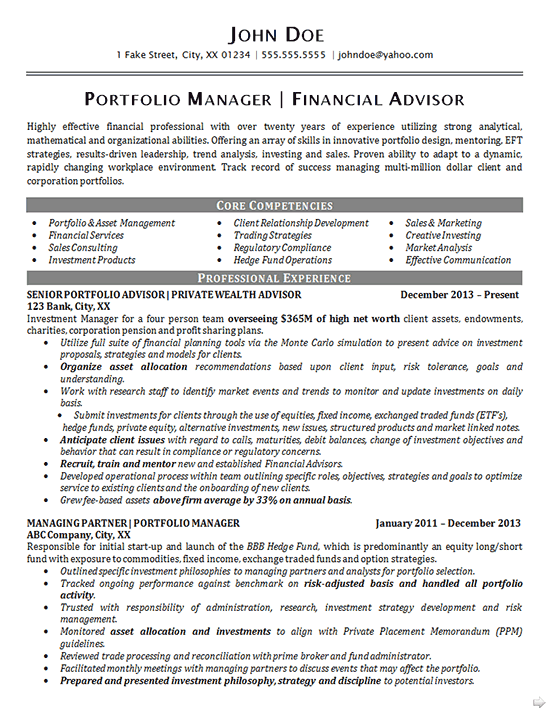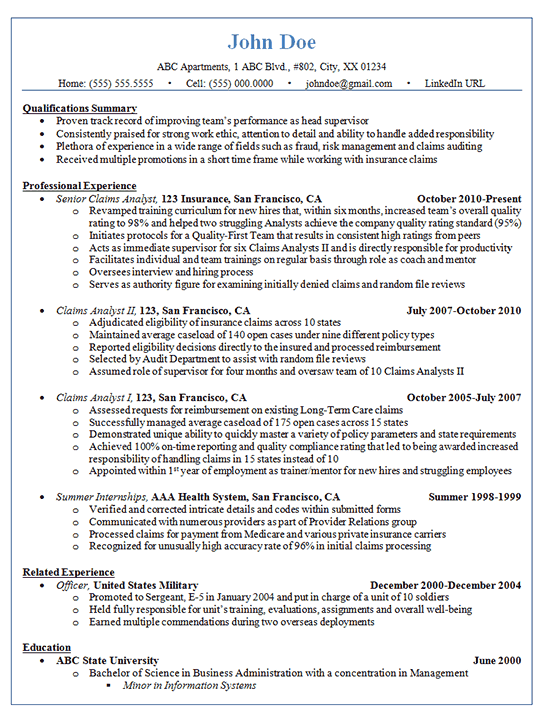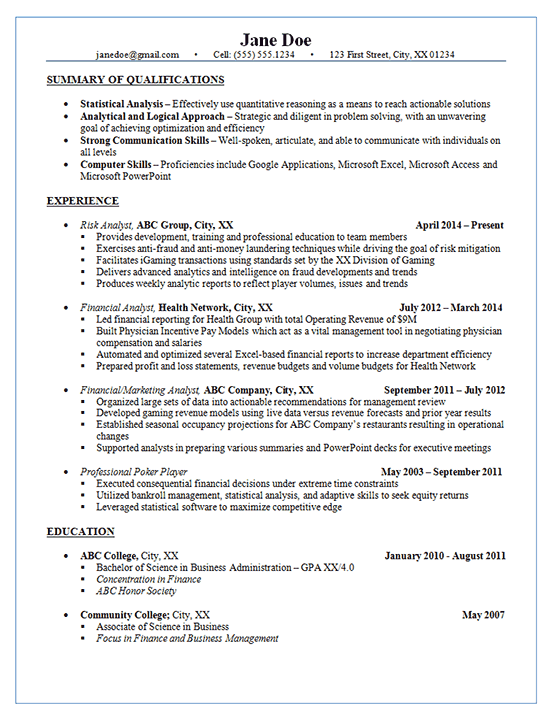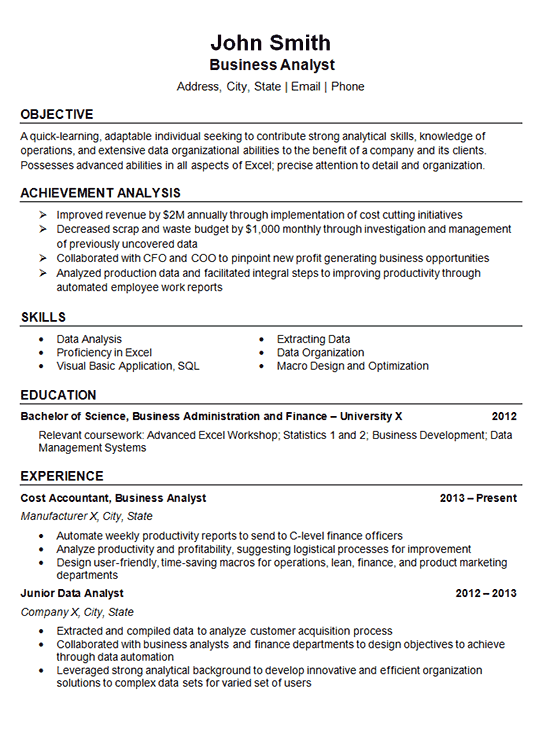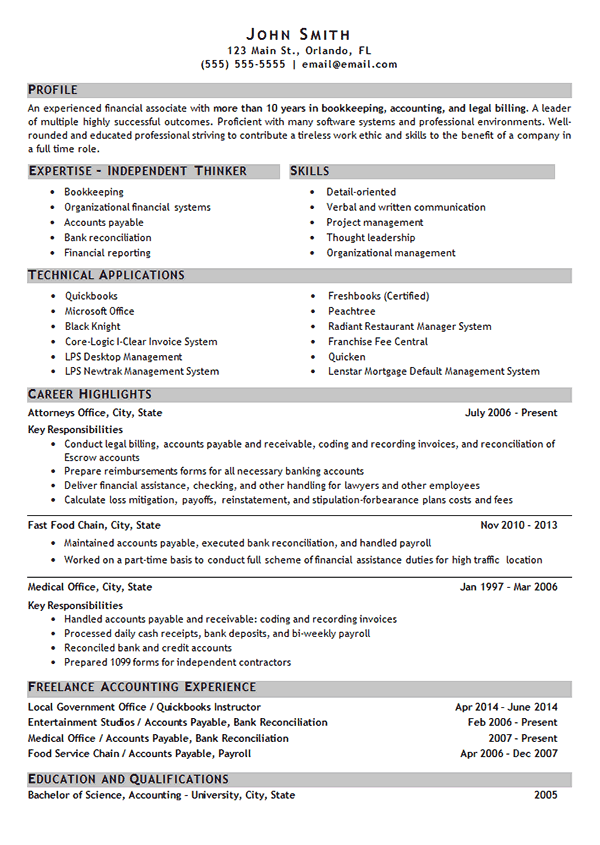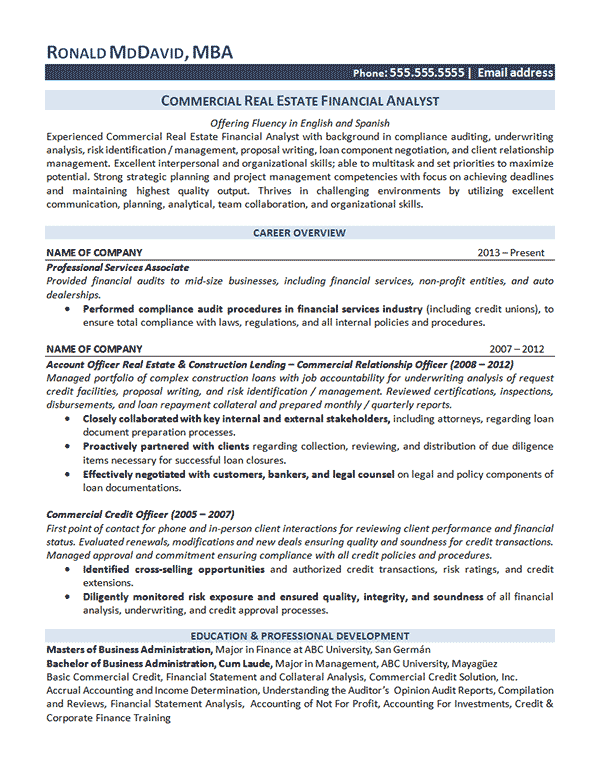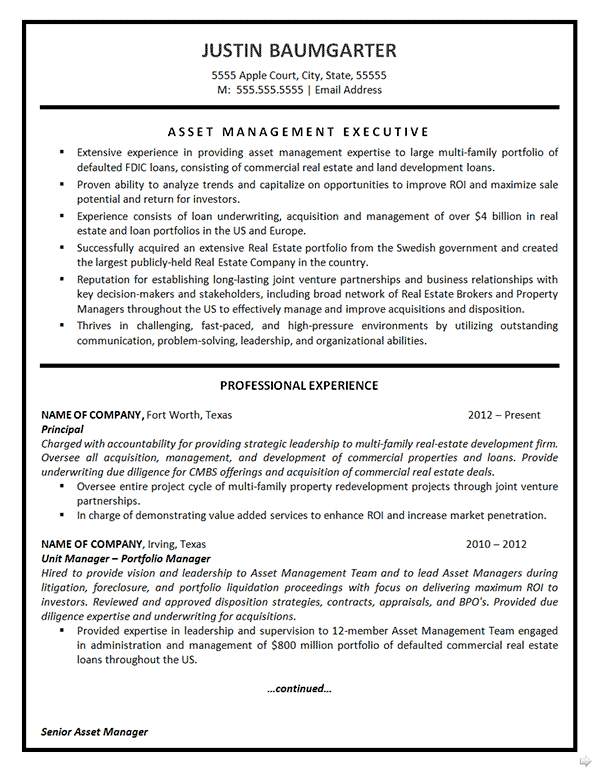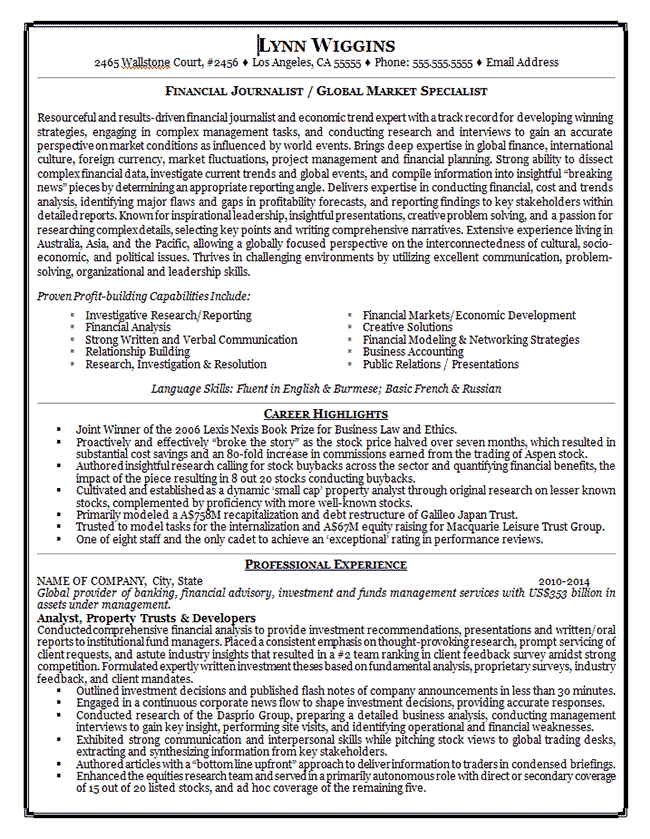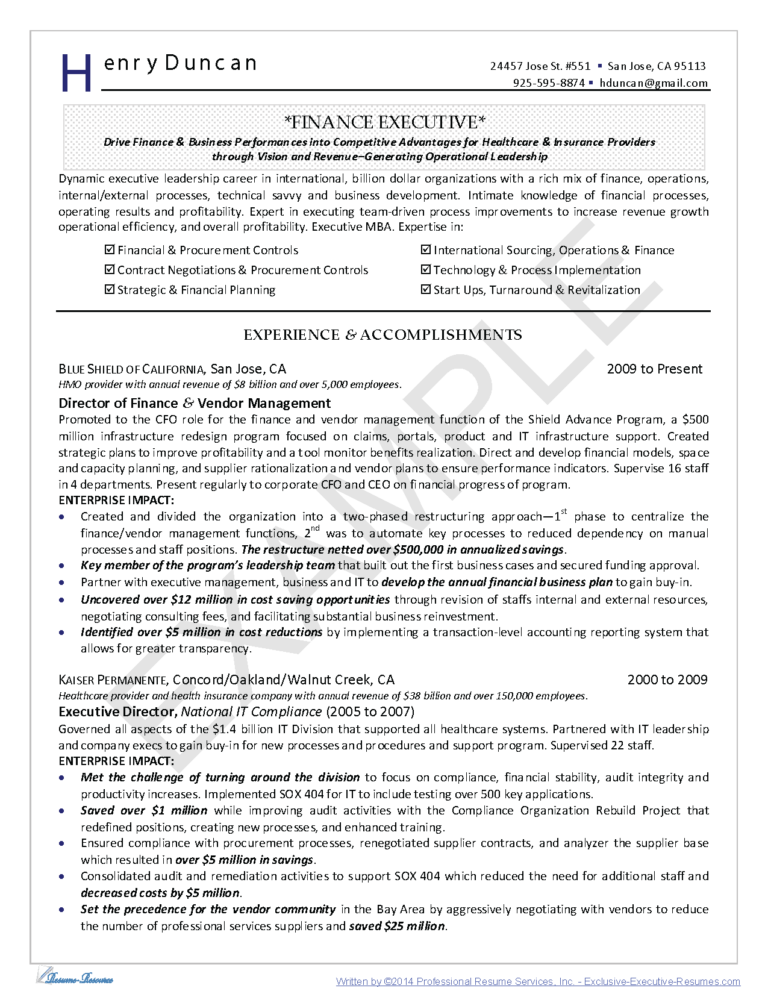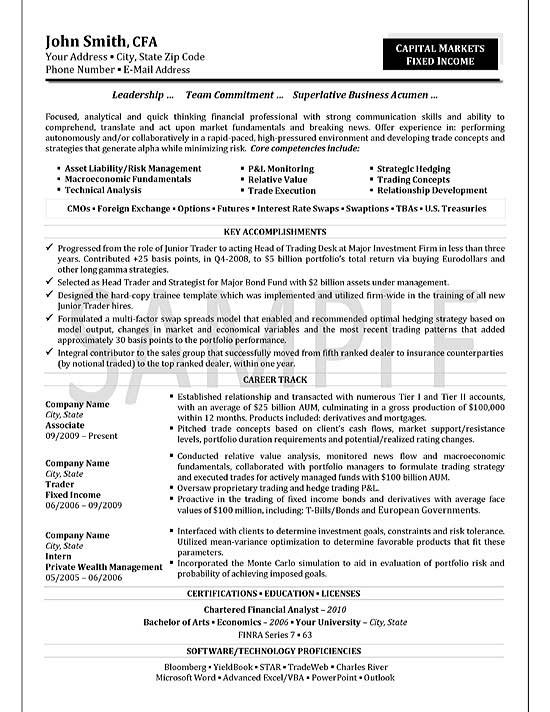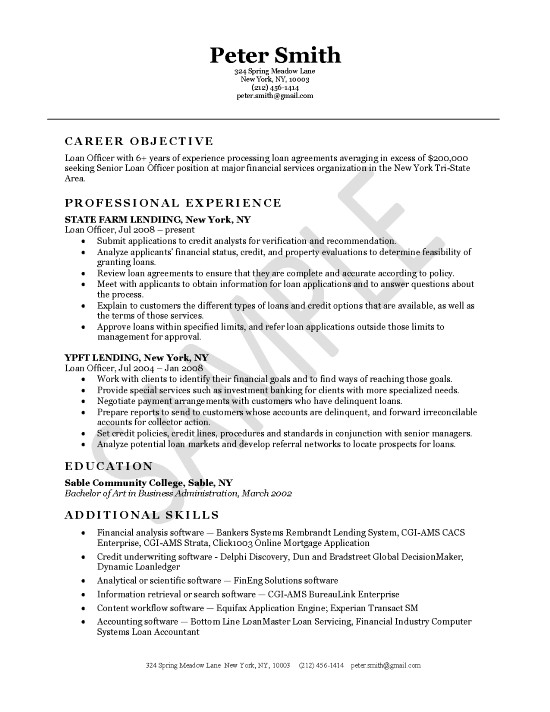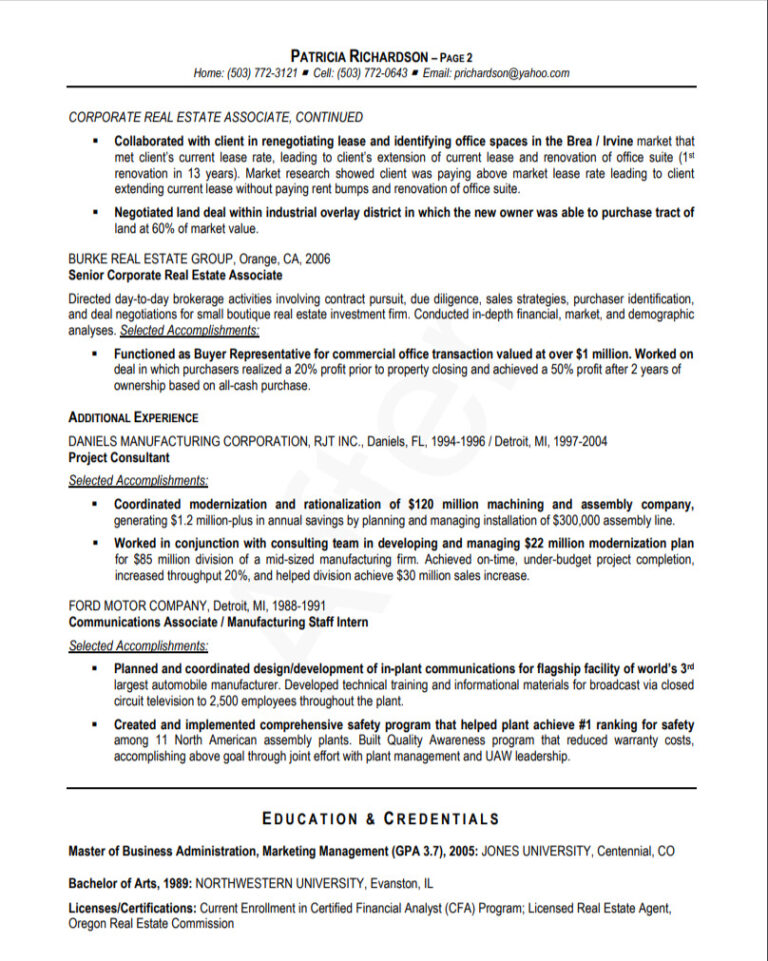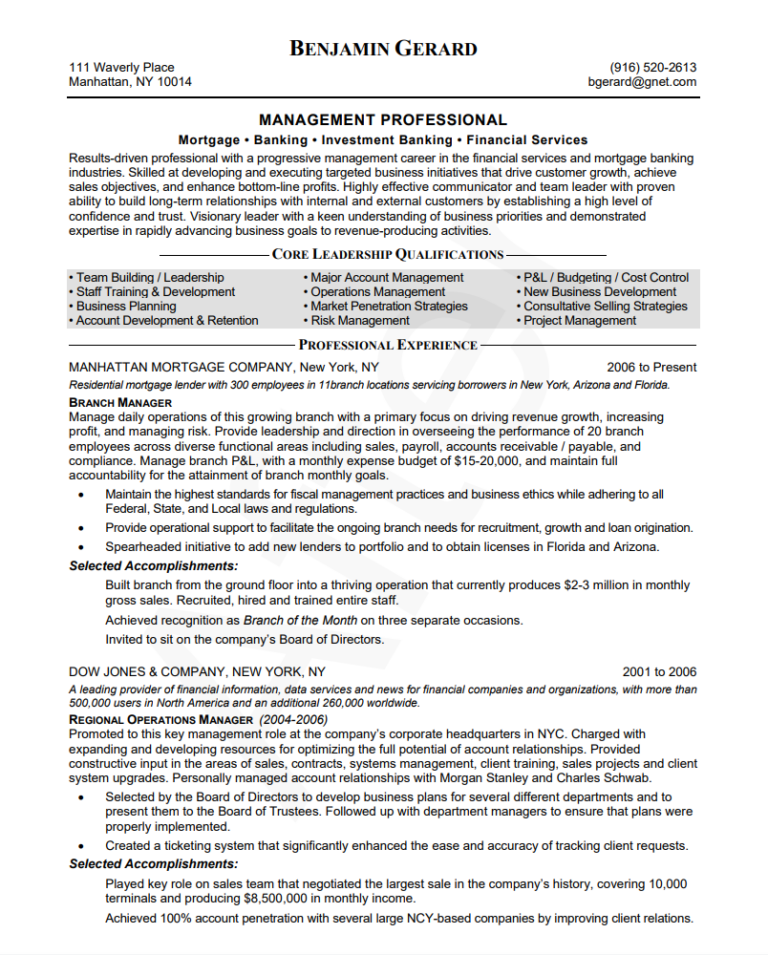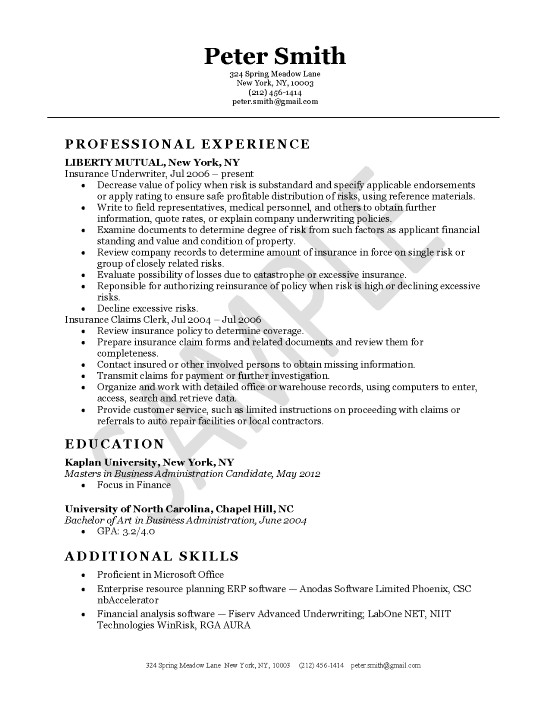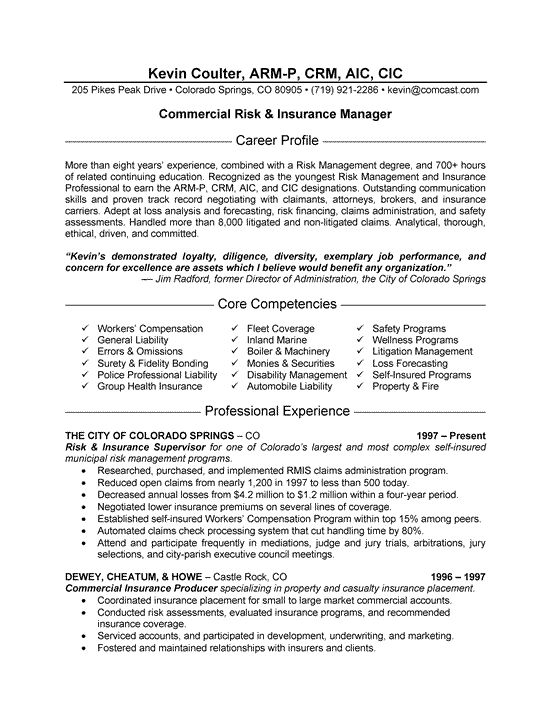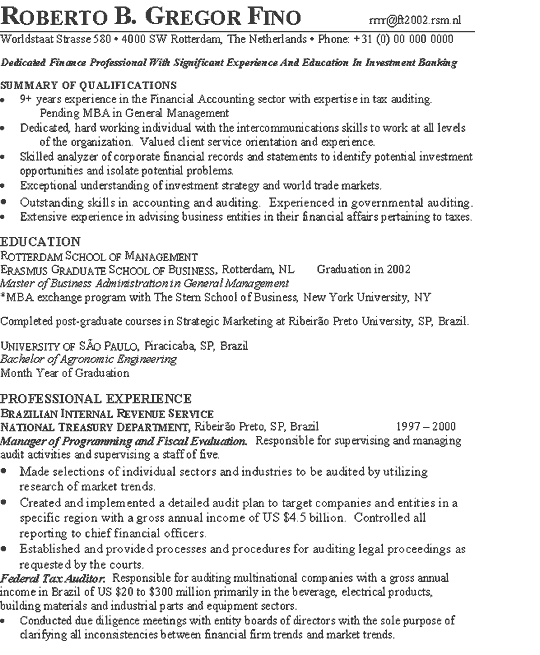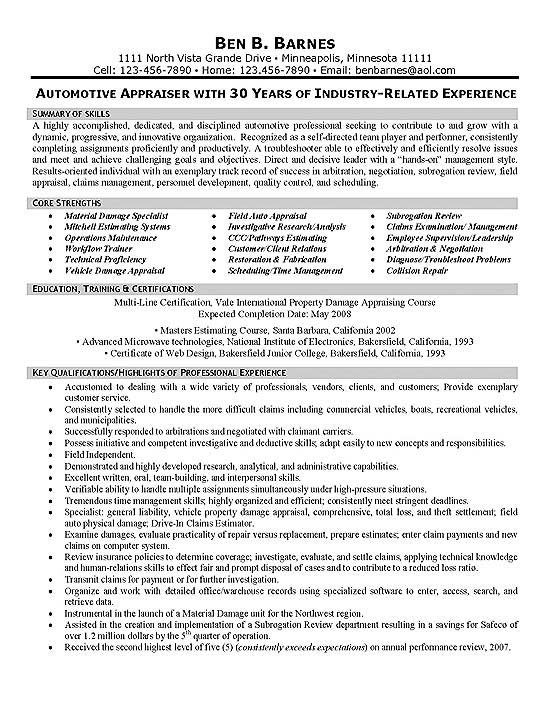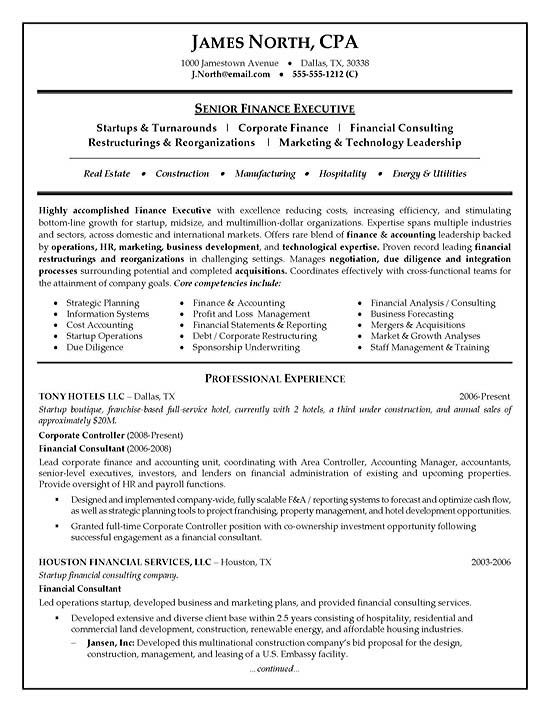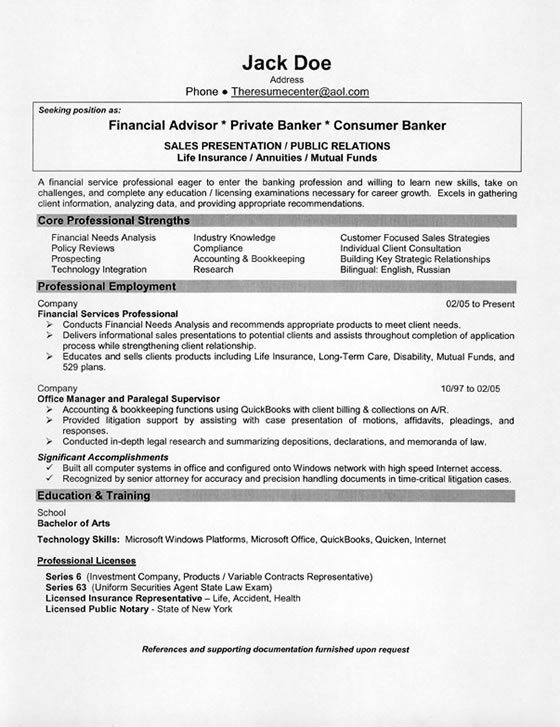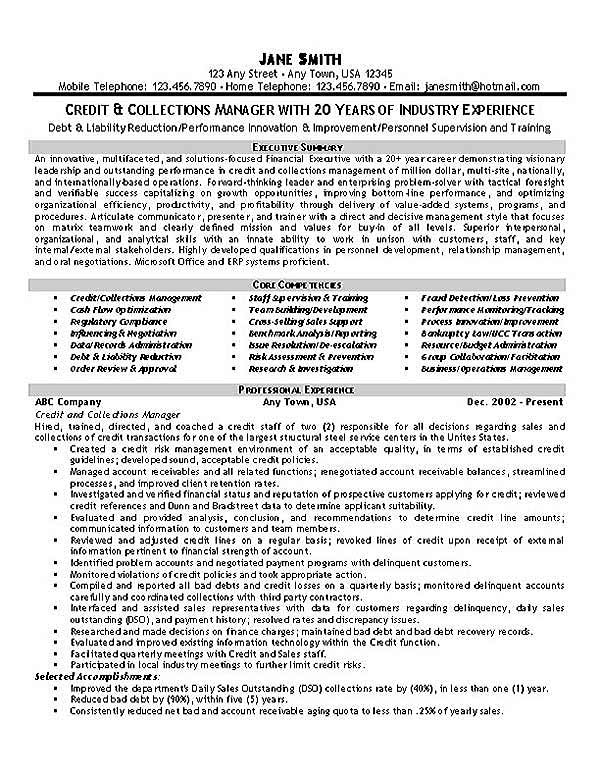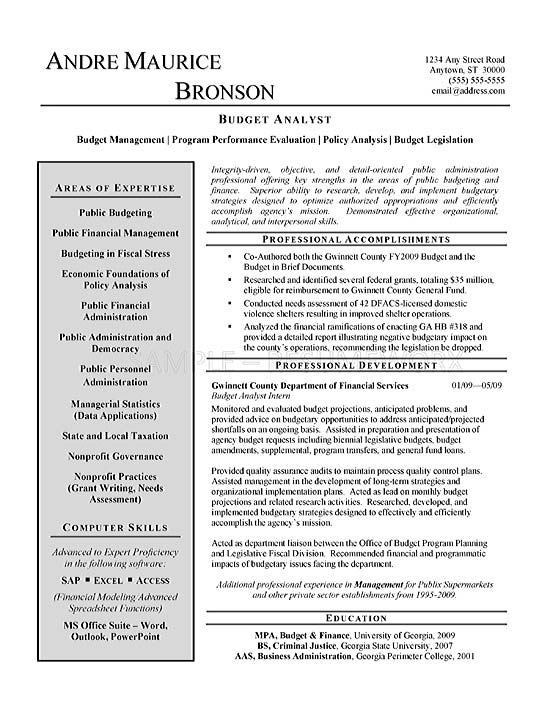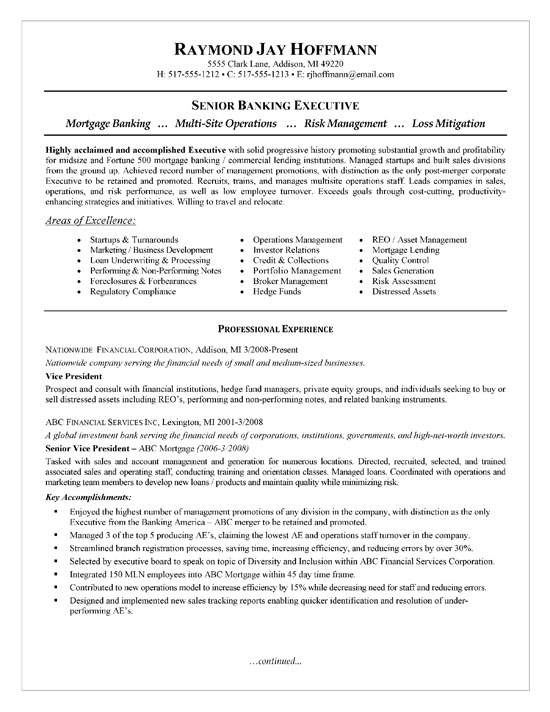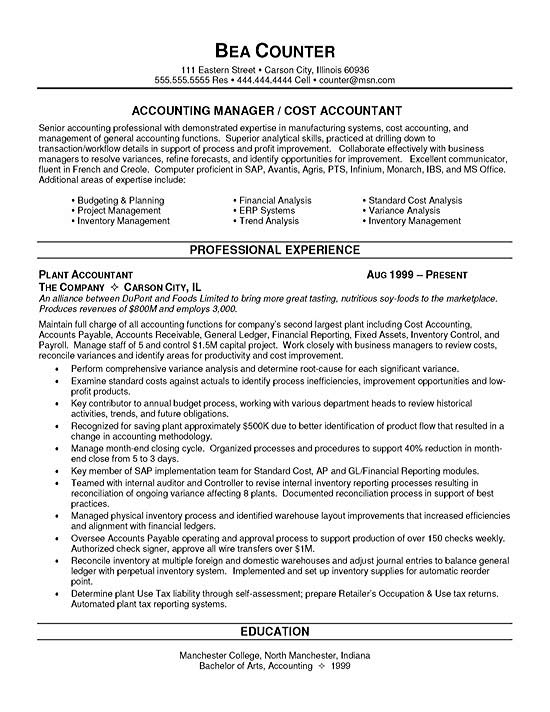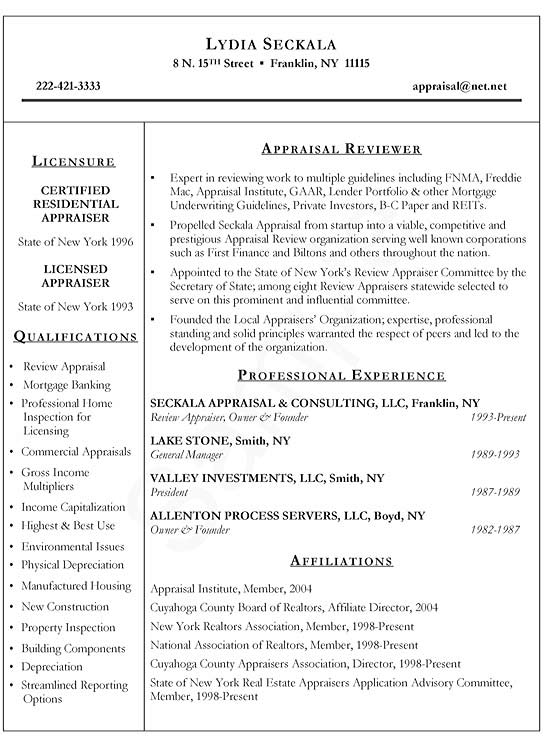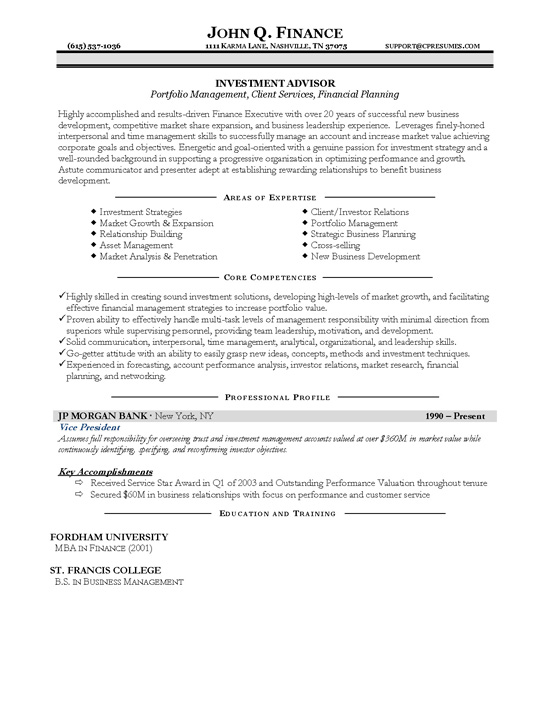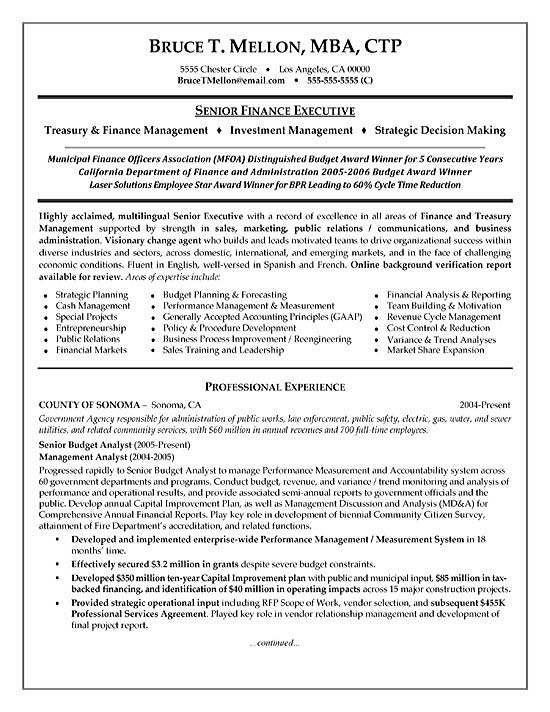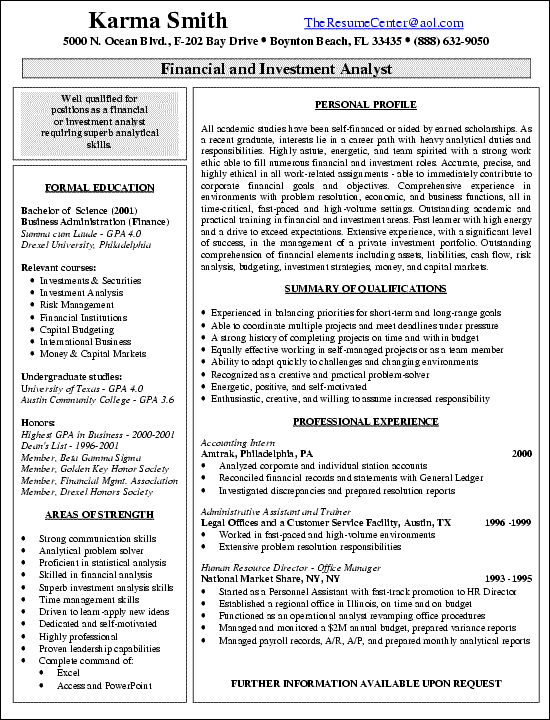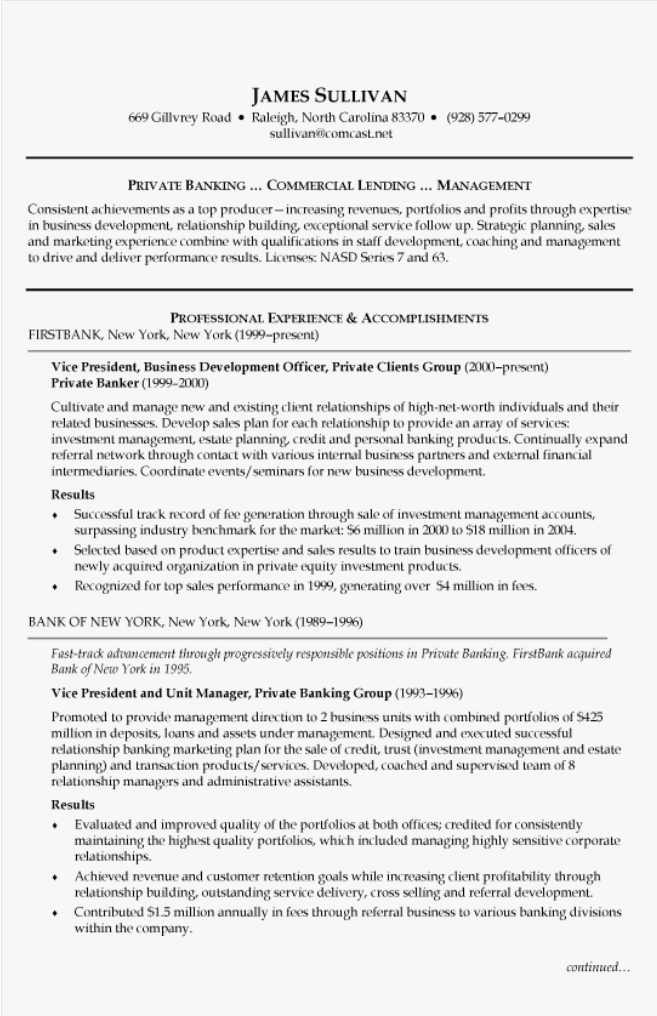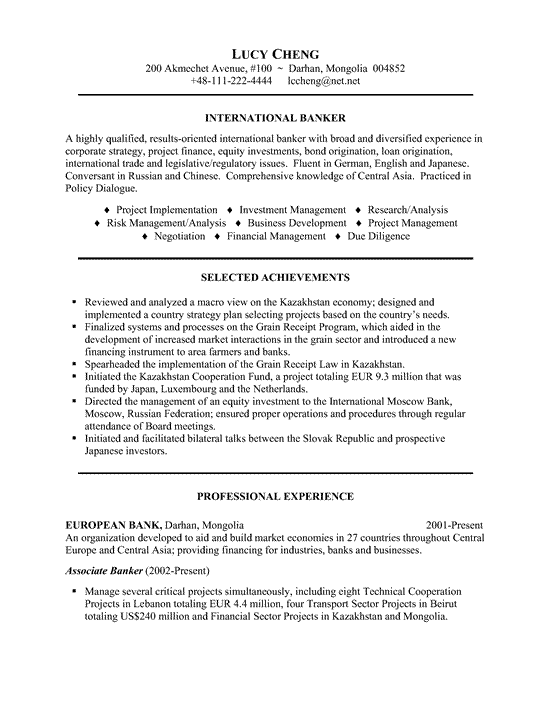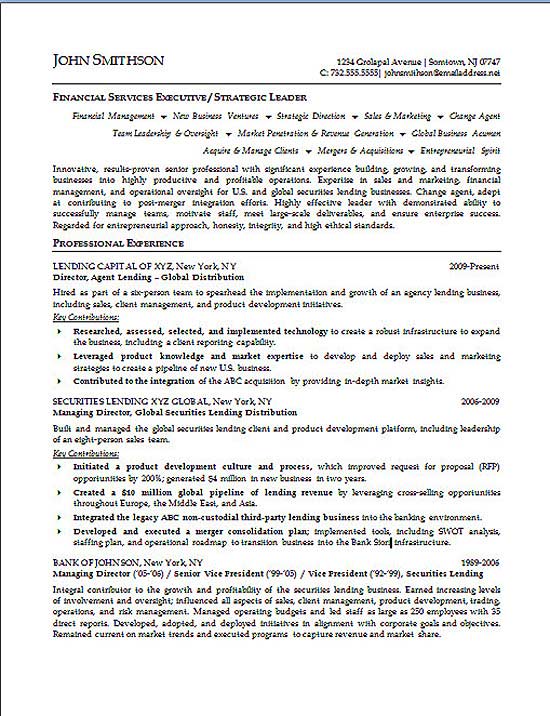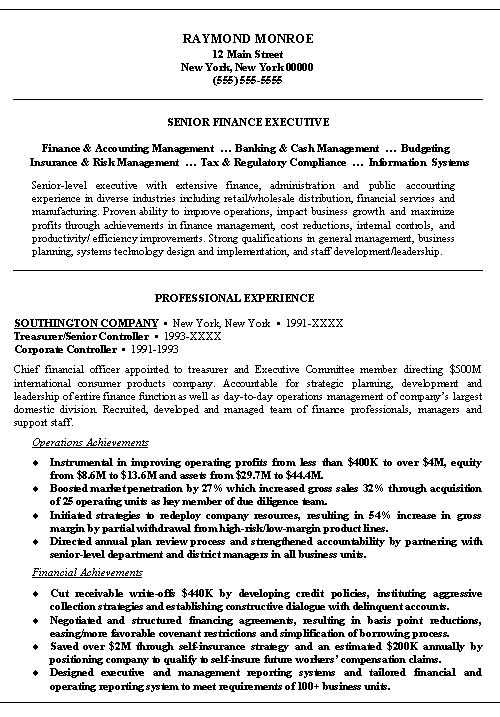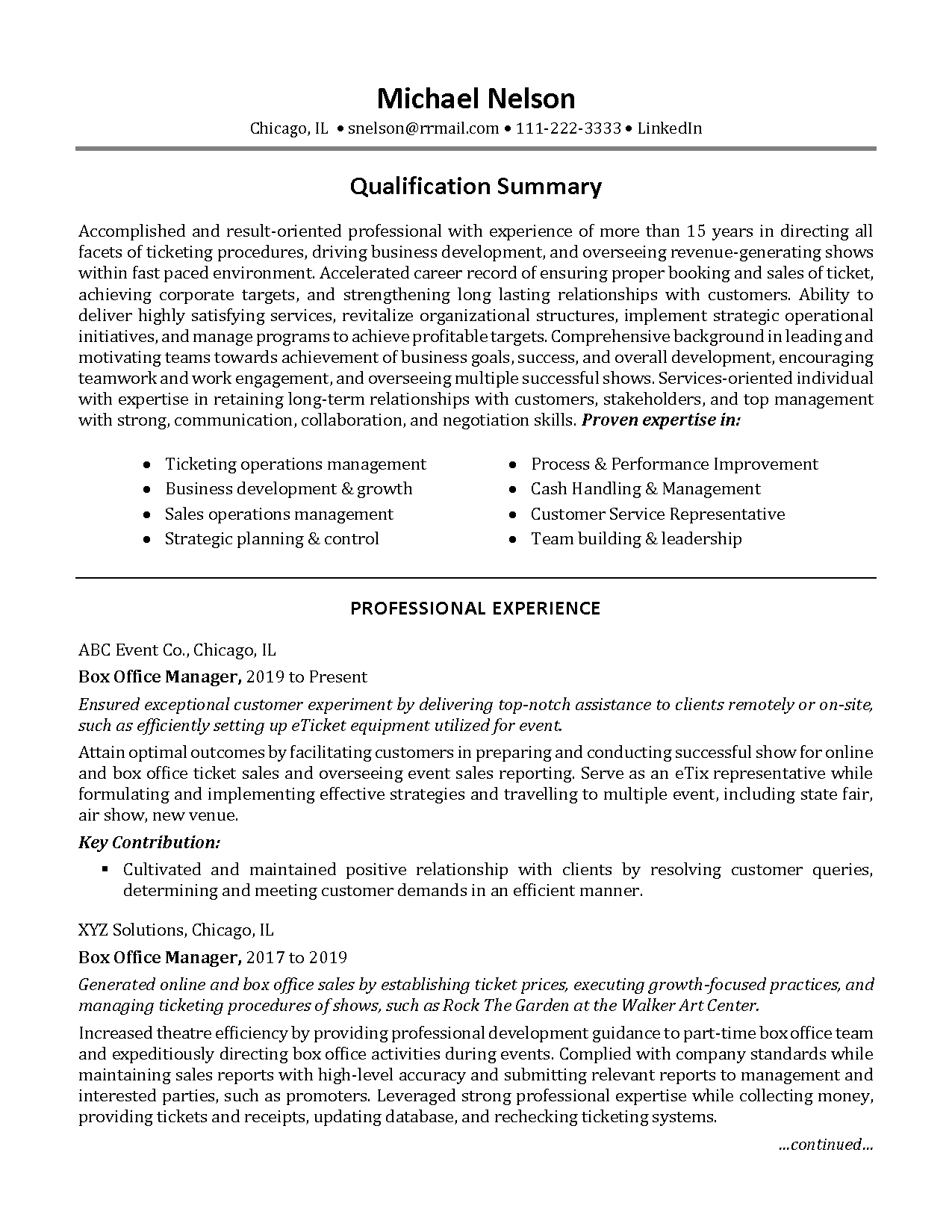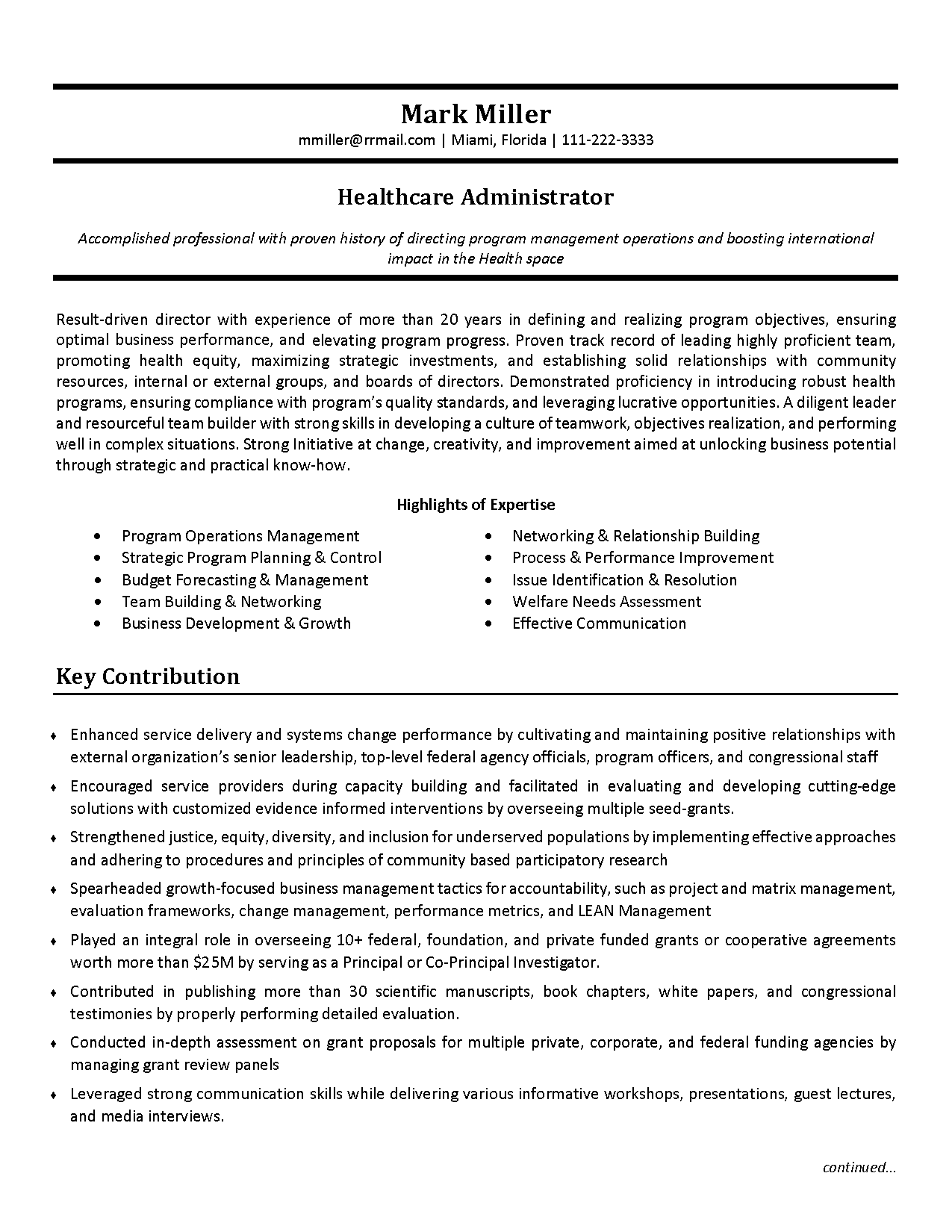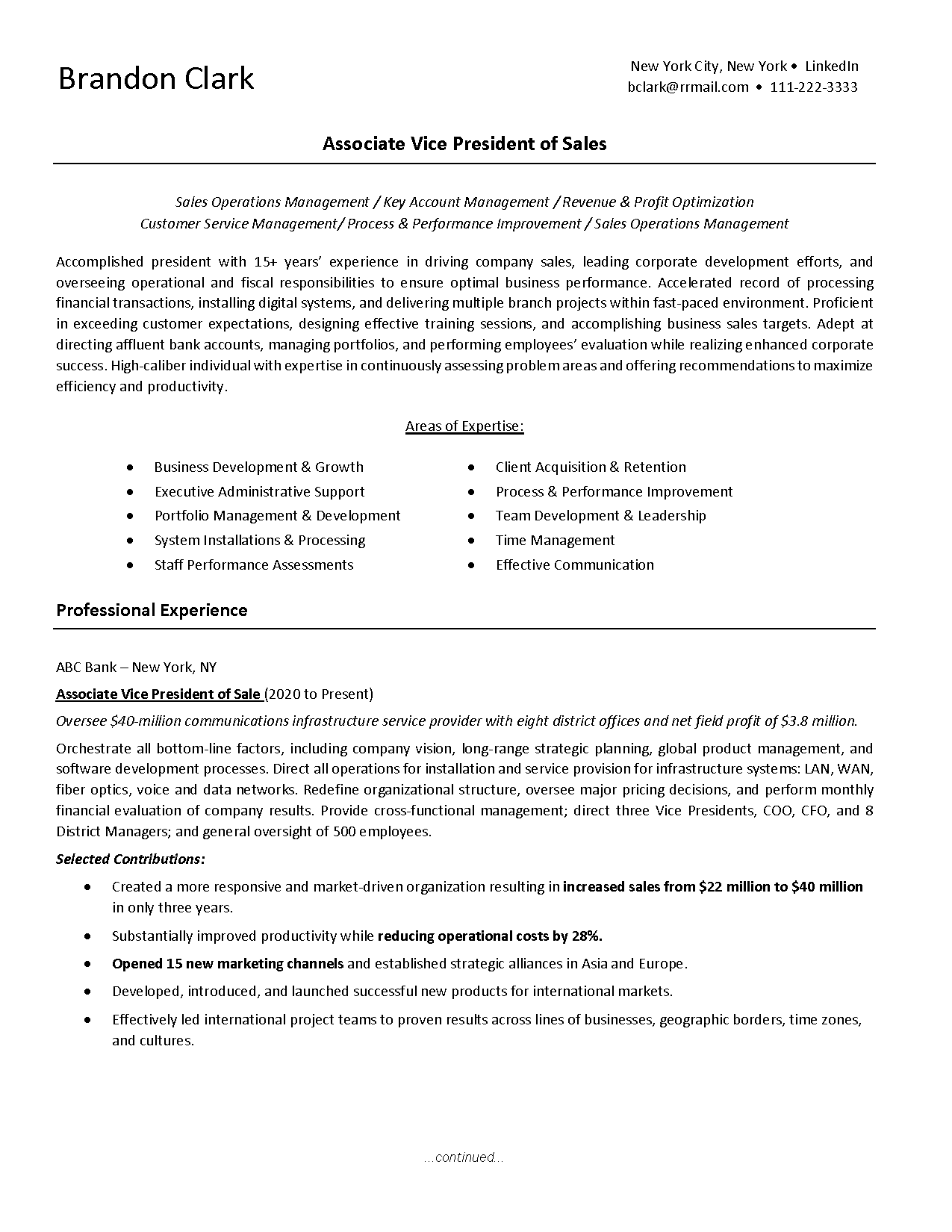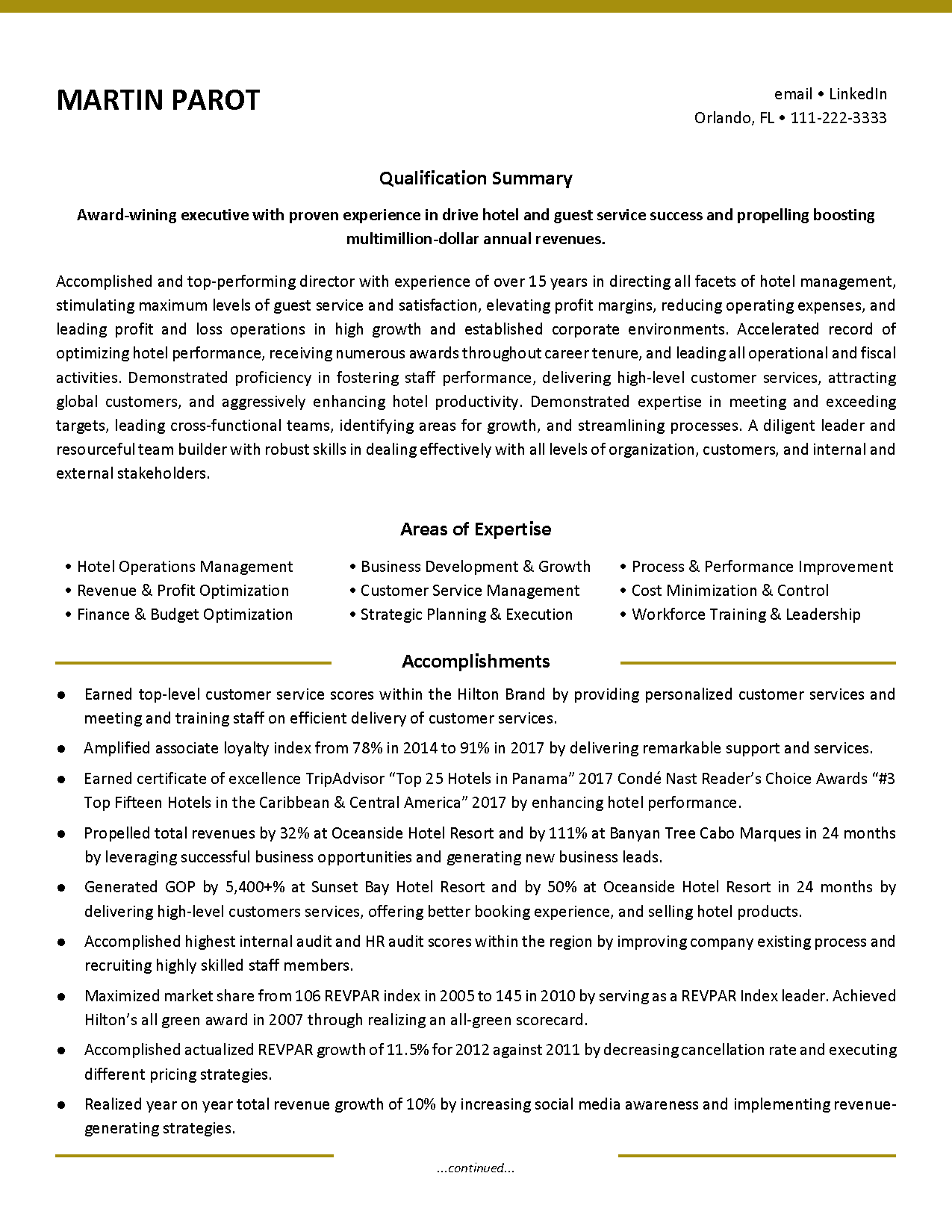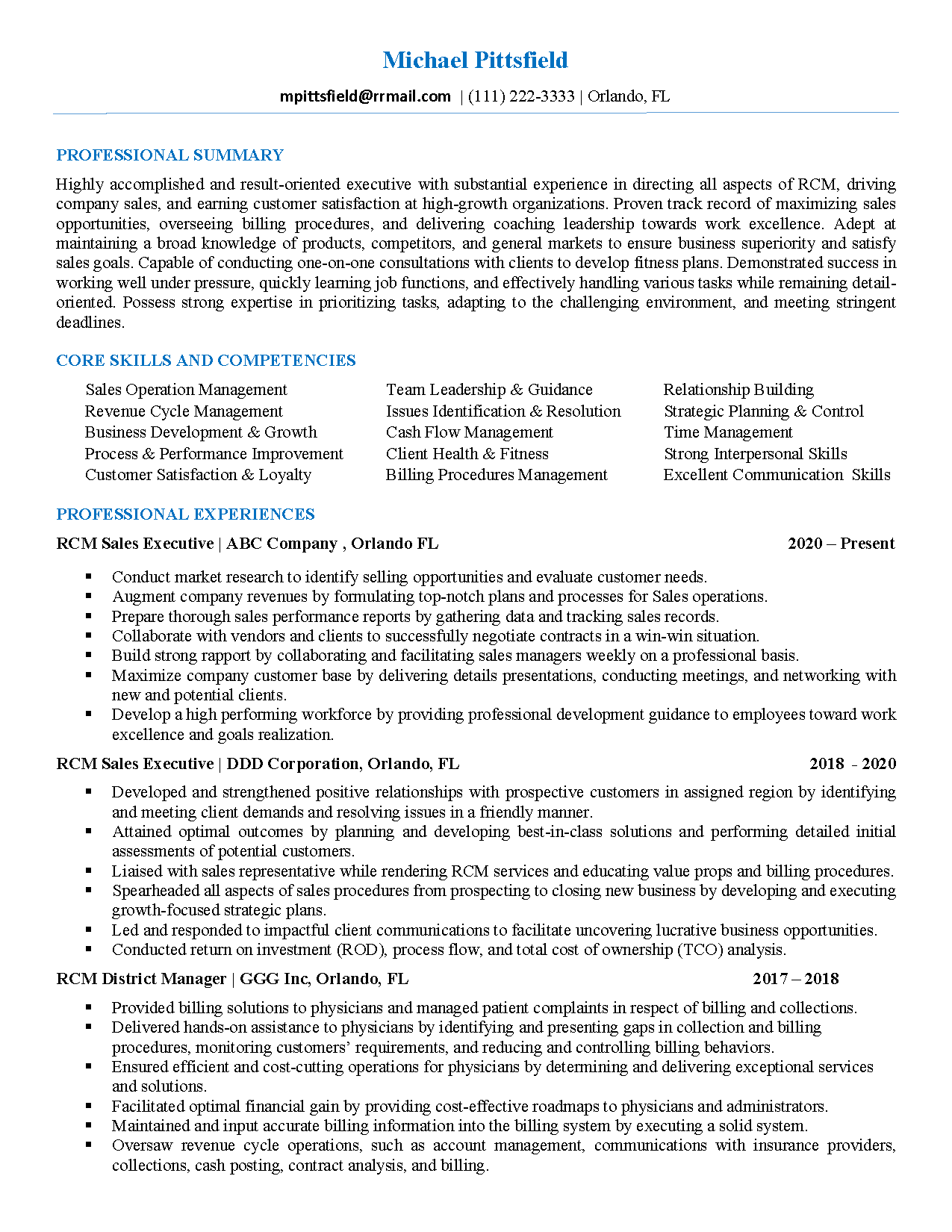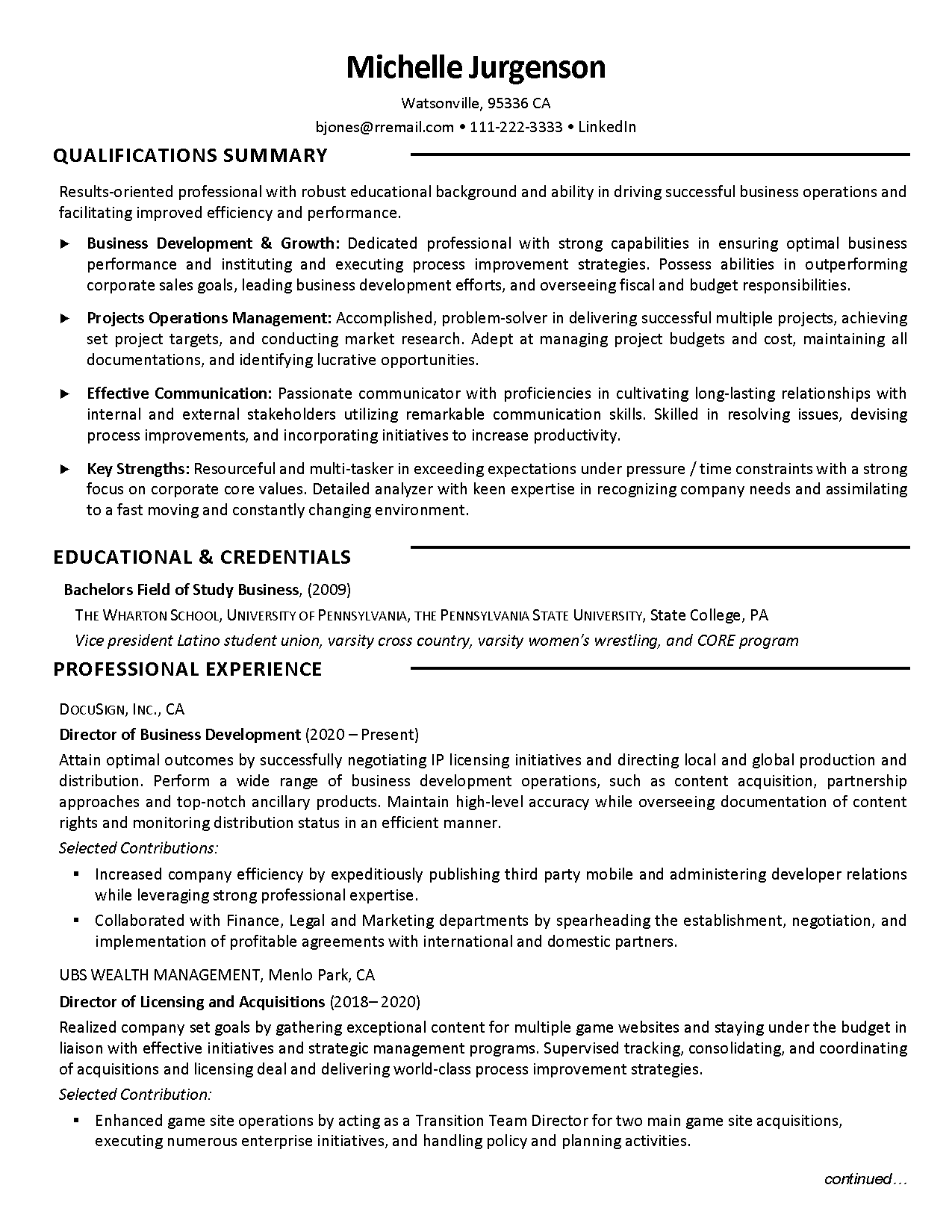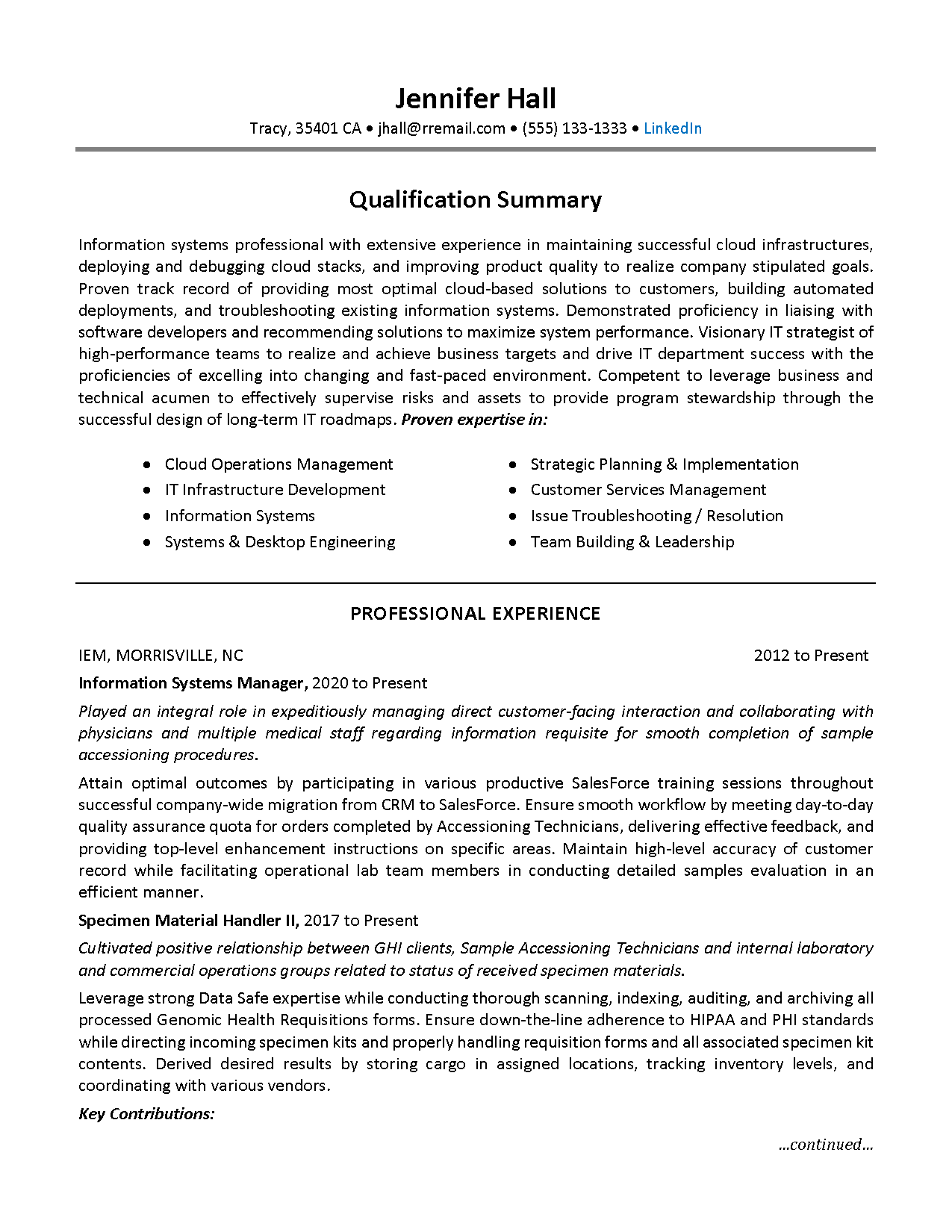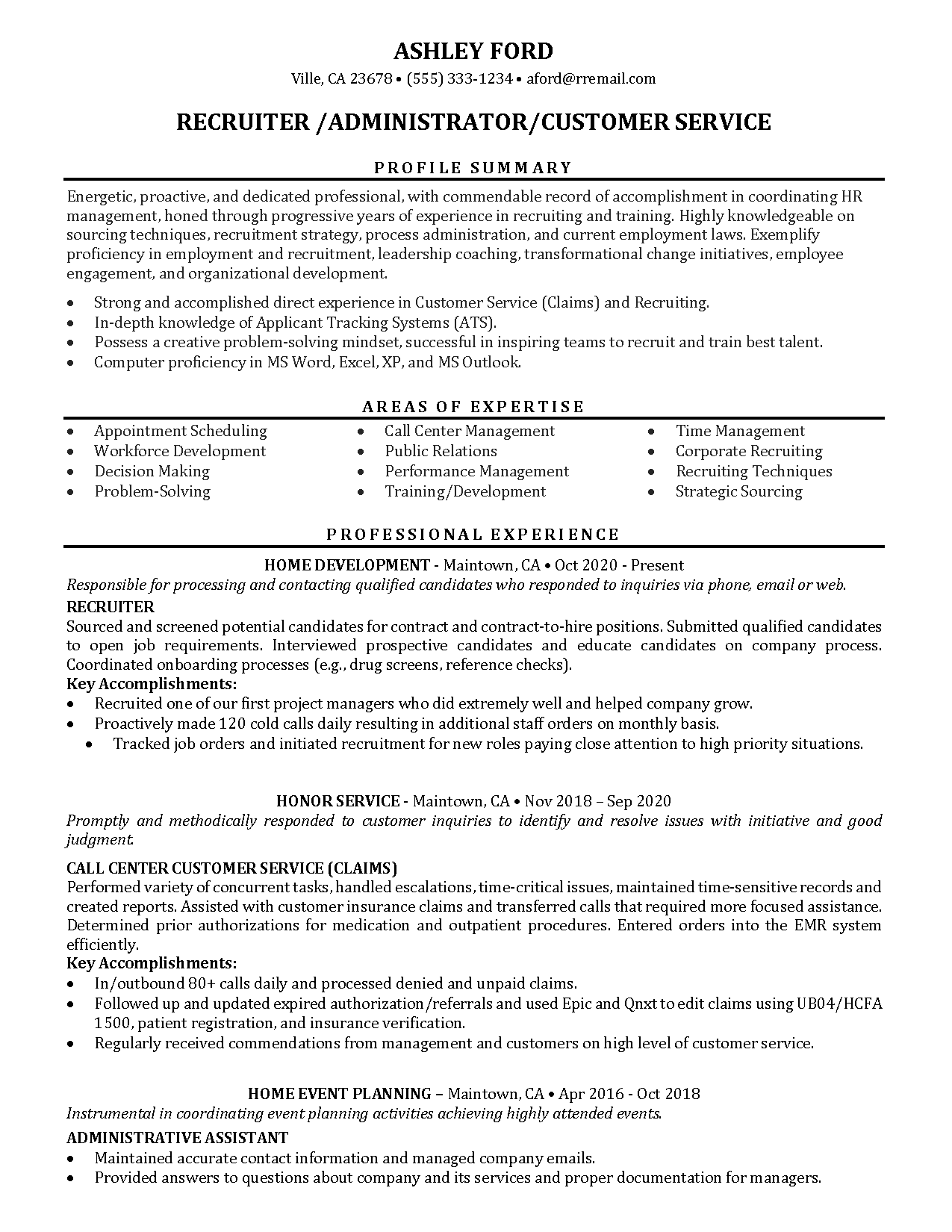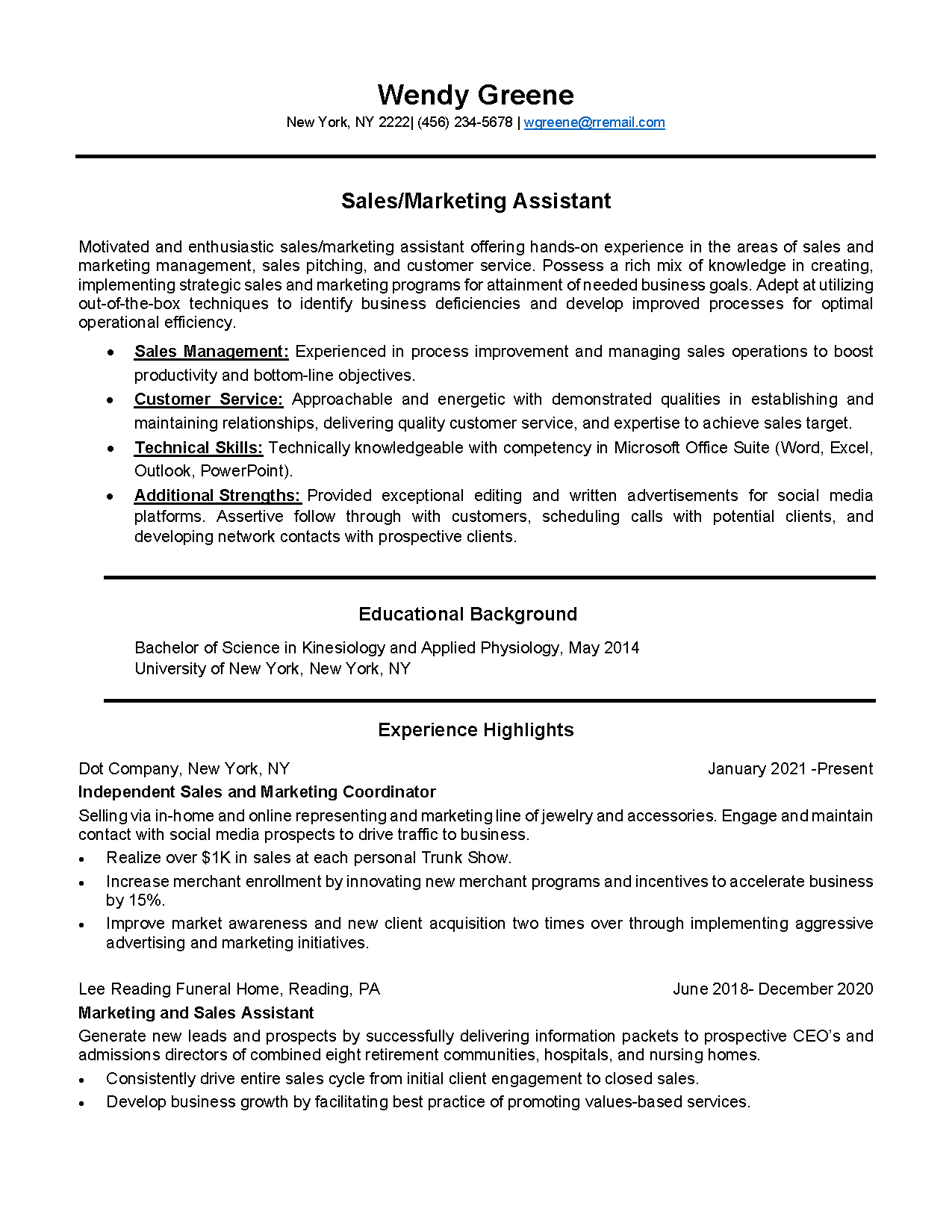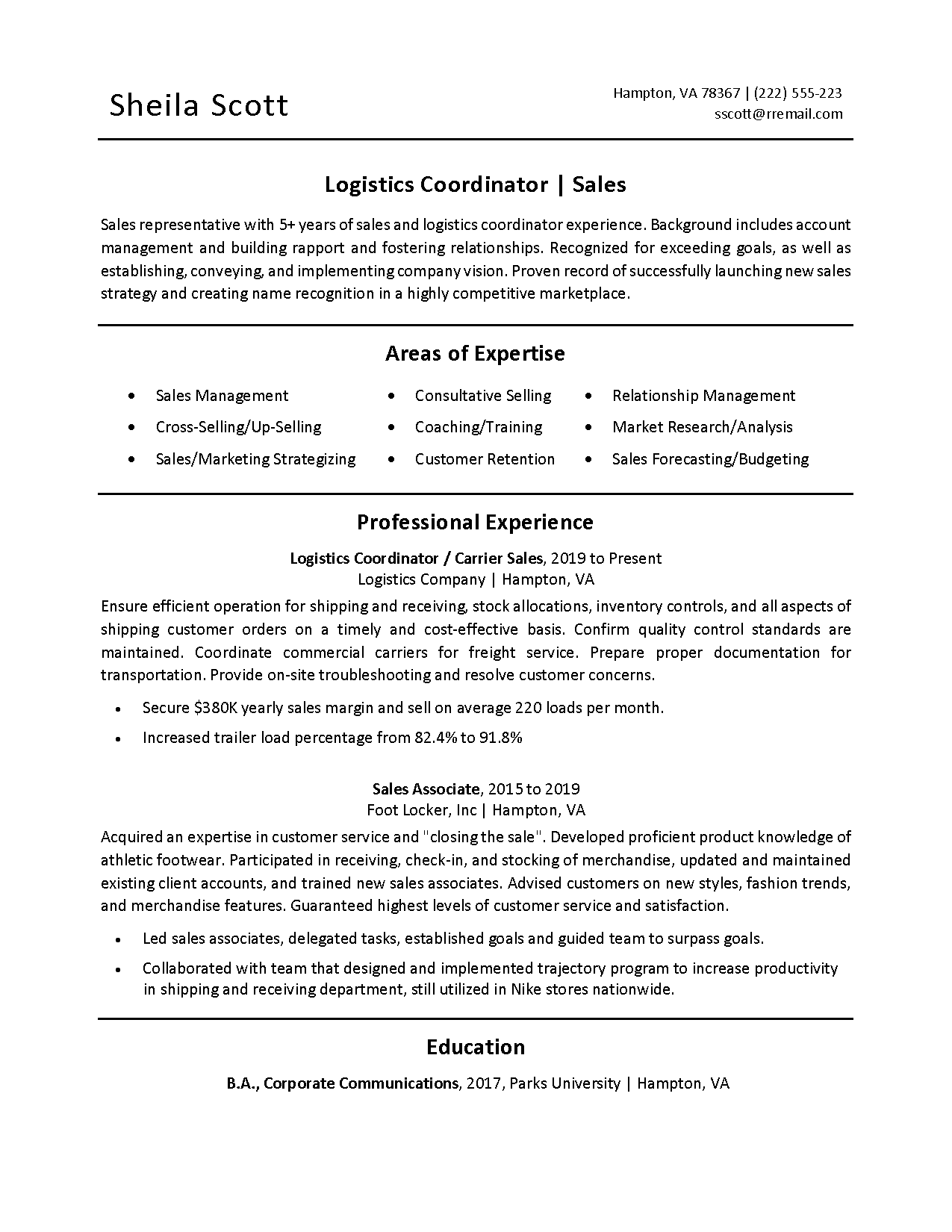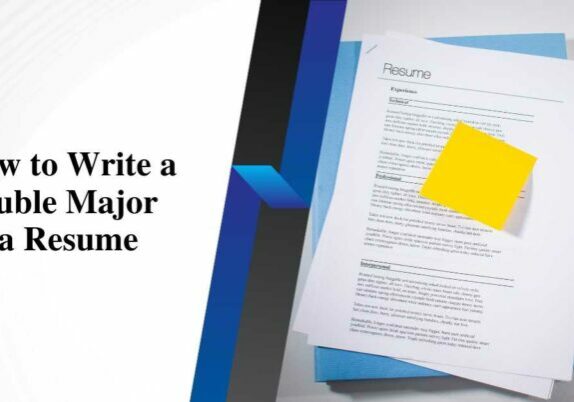Finance, investment and insurance professionals should follow basic resume writing guidelines to produce a resume. Individuals in an executive or management position may want to review the guidelines for those particular resume styles.
For professionals in the finance and accounting industry, resumes should be one page if you have had less than 4 jobs and less than 15 years of experience. There is no reason to go into tremendous detail unless you have a senior level career.
As with all professional resumes, you will want a brief introduction summary that outlines your career. Most finance professionals will want to use a conservative reverse chronological format with some brief statements of responsibility and two to three achievements per job.
In most cases, individuals in finance and accounting positions will list their education, training and affiliations at the bottom of the document. An MBA may want to mention this in the summary with the formal education section at the bottom providing more details. This may also be an option for industry wide financial, investment and brokerage certifications.
Using our financial resume examples can be an excellent way to kickstart your own resume writing process.
Think of it like this: you wouldn't build a house without looking at blueprints or a map, right? Similarly, you shouldn't write a resume without first examining examples of what makes a successful one. This is where our financial resume examples can come in handy.
Starting with Financial Resume Examples
The first step is to carefully examine each example and identify the key components that make it effective. Look at the language and formatting used, as well as the specific skills and experiences highlighted.
For example, if you're seeking a job as a financial analyst, look for examples that emphasize data analysis, financial modeling, and financial reporting. Note how these examples use concise language and bullet points to showcase specific achievements and qualifications.
Starting Creating the Document
Once you've analyzed the financial resume examples, it's time to start crafting your own resume. Begin by brainstorming your key skills and experiences, and then organize them in a way that highlights your most relevant qualifications for the job you're seeking.
The introduction should be standard paragraph summary. It would be helpful to pinpoint core strengths. If you are in a financial position, then numbers will be important to potential employers. You need to make sure you mention the dollar amounts of budgets or company finances that you are responsible for managing or even working with. If your analysis leads to cost savings then make sure to highlight your results. If you are a loan officer then state the volume of loans you make and your record of success.
Sentence & Structure
Remember to use clear and concise language, and use bullet points to make your resume easy to scan. This will help ensure that hiring managers can quickly and easily identify your key strengths.
In addition, be sure to tailor your resume to the specific job you're applying for. Use keywords and phrases from the job description to show that you're a good match for the position. You can also find a list of job descriptions here that include many jobs in finance.
Financial Licenses & Certifications
Of course, you should make sure to emphasize significant certifications or license, such as a Series 7 license. If you have a specialization such as financial analysis or commodities investment, then It may even be helpful to have multiple versions of a resume that accentuate each area of expertise.
Wrap it Up
Finally, don't forget to proofread and edit your resume carefully. Even the smallest typo or grammatical error can be a turnoff to hiring managers. Consider having a friend or family member review your resume to catch any errors you might have missed.
By carefully analyzing these financial resume examples and incorporating key elements into your own resume, you can increase your chances of finding a job in the finance, investment or insurance industry. Good luck!

